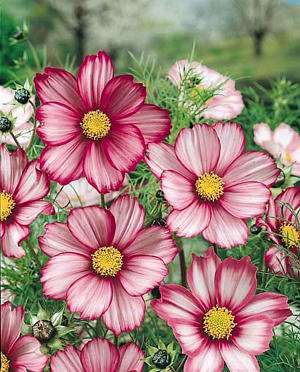Stamp: Right to maintenance in old age (Article 120) (Soviet Union, USSR 1952)
Right to maintenance in old age (Article 120) (Soviet Union, USSR 1952)
15 May (Soviet Union, USSR ) within release 15th Anniversary of Stalin Constitution (1936-1951) goes into circulation Stamp Right to maintenance in old age (Article 120) face value 40 Russian kopek
| Stamp Right to maintenance in old age (Article 120) in catalogues | |
|---|---|
| Michel: | Mi:SU 1630 |
Stamp is vertical format.
Stamp Right to maintenance in old age (Article 120) it reflects the thematic directions:
A flag is a piece of fabric (most often rectangular or quadrilateral) with a distinctive design that is used as a symbol, as a signaling device, or as decoration. The term flag is also used to refer to the graphic design employed, and flags have since evolved into a general tool for rudimentary signalling and identification, especially in environments where communication is similarly challenging (such as the maritime environment where semaphore is used). National flags are patriotic symbols with varied wide-ranging interpretations, often including strong military associations due to their original and ongoing military uses. Flags are also used in messaging, advertising, or for other decorative purposes. The study of flags is known as vexillology, from the Latin word vexillum, meaning flag or banner.
A flower, sometimes known as a bloom or blossom, is the reproductive structure found in plants that are floral (plants of the division Magnoliophyta, also called angiosperms). The biological function of a flower is to effect reproduction, usually by providing a mechanism for the union of sperm with eggs. Flowers may facilitate outcrossing (fusion of sperm and eggs from different individuals in a population) or allow selfing (fusion of sperm and egg from the same flower). Some flowers produce diaspores without fertilization (parthenocarpy). Flowers contain sporangia and are the site where gametophytes develop. Many flowers have evolved to be attractive to animals, so as to cause them to be vectors for the transfer of pollen. After fertilization, the ovary of the flower develops into fruit containing seeds. In addition to facilitating the reproduction of flowering plants, flowers have long been admired and used by humans to beautify their environment, and also as objects of romance, ritual, religion, medicine and as a source of food.
A tower is a tall structure, taller than it is wide, often by a significant factor. Towers are distinguished from masts by their lack of guy-wires and are therefore, along with tall buildings, self-supporting structures.
Politics (from Ancient Greek πολιτικά (politiká) 'affairs of the cities') is the set of activities that are associated with making decisions in groups, or other forms of power relations among individuals, such as the distribution of status or resources. The branch of social science that studies politics and government is referred to as political science
A people is a plurality of persons considered as a whole, as is the case with an ethnic group or nation. Collectively, for example, the contemporary Frisians and Danes are two related Germanic peoples, while various Middle Eastern ethnic groups are often linguistically categorized as Semitic peoples.
An anniversary is the date on which an event took place or an institution was founded in a previous year, and may also refer to the commemoration or celebration of that event. For example, the first event is the initial occurrence or, if planned, the inaugural of the event. One year later would be the first anniversary of that event. The word was first used for Catholic feasts to commemorate saints. Most countries celebrate national anniversaries, typically called national days. These could be the date of independence of the nation or the adoption of a new constitution or form of government. The important dates in a sitting monarch's reign may also be commemorated, an event often referred to as a "Jubilee".





